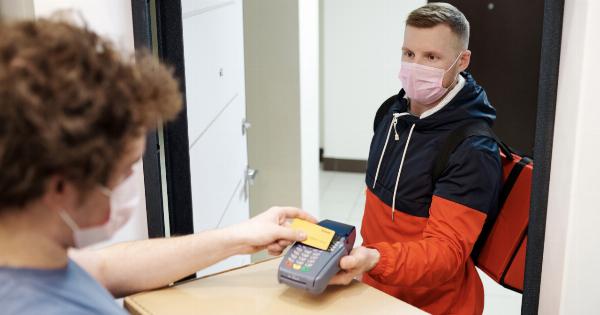Being prepared is an essential trait that can save lives and prevent disasters. Just like heroes in movies, individuals who are prepared for any situation have a higher chance of overcoming challenges and emerging victorious.
In this article, we will explore the importance of being prepared and discuss some key strategies to cultivate this heroic quality.
Why Being Prepared Matters
Being prepared is not just a cliché; it has tangible benefits that can make a significant difference in various aspects of life. Here are a few reasons why being prepared matters:.
1. Safety and Security
By being prepared, you can ensure your safety and that of your loved ones. It involves taking precautions, such as having a fire extinguisher at home, knowing basic first aid techniques, or being competent in self-defense.
These skills and resources can save lives and protect from harm.
2. Crisis Management
During unexpected crisis situations like natural disasters or emergencies, being prepared allows you to respond effectively and mitigate the damage.
Whether it’s having a well-stocked emergency kit or knowing evacuation routes, being prepared can make a significant difference in handling crises.
3. Success in Academic or Professional Pursuits
Being prepared is crucial for success in academic and professional pursuits. Whether it’s studying in advance for an exam, researching for a presentation, or anticipating potential obstacles at work, prepared individuals have a distinct advantage.
They are better equipped to handle challenges and excel in their endeavors.
4. Building Confidence
Being prepared boosts your confidence. When you know you have taken the necessary steps to prepare for a situation, you feel more self-assured and in control. This confidence can positively impact your performance, relationships, and overall well-being.
Key Strategies to Be Prepared
1. Planning and Organization
Effective planning and organization are fundamental to being prepared. Write down your goals, create to-do lists, and establish a routine to stay on track. Break down larger tasks into smaller, manageable steps, and set deadlines to ensure progress.
Proper planning allows you to anticipate challenges and prepare accordingly.
2. Learning New Skills
Continuous learning expands your knowledge and equips you with new skills. Identify areas where you lack proficiency and take the initiative to learn. Attend workshops, enroll in courses, or seek guidance from experts to acquire the necessary skills.
The more skills you possess, the better prepared you will be to face any situation.
3. Building a Network
Surrounding yourself with a supportive network of individuals can be invaluable in times of need. Cultivate relationships with people who can offer guidance, resources, and support. This network can include friends, family, colleagues, or even mentors.
By establishing connections, you create a safety net that helps you navigate challenging situations.
4. Physical and Mental Fitness
Maintaining physical and mental fitness is vital for being prepared. Regular exercise, a balanced diet, and sufficient rest contribute to physical well-being.
Additionally, engaging in activities that enhance mental health, such as mindfulness and meditation, can improve resilience and cognitive abilities. A healthy mind and body are better equipped to handle the demands of life.
5. Building Emergency Kits
Creating emergency kits is essential for being prepared in crisis situations. Prepare kits for different scenarios, such as natural disasters, medical emergencies, or car breakdowns.
Include items like first aid supplies, non-perishable food, water, flashlights, batteries, and a portable phone charger. Regularly check and update these kits to ensure their effectiveness.
6. Developing Problem-Solving Skills
Problem-solving skills are crucial for being prepared in challenging situations. Sharpen your ability to think critically and develop solutions. Practice analyzing problems from different angles and brainstorming potential solutions.
The better you become at problem-solving, the more equipped you will be to face unexpected challenges.
7. Practicing Situational Awareness
Situational awareness involves understanding your surroundings and being alert to potential threats or opportunities. Practice observing your environment, identifying potential risks, and taking appropriate precautions.
By honing your situational awareness, you enhance your ability to respond effectively in different situations.
8. Staying Informed
Stay updated with current events, both globally and locally. Be aware of potential risks, such as extreme weather conditions or political unrest, that may affect your safety.
Regularly access reliable news sources, subscribe to emergency alerts, and stay connected with community organizations. Being informed allows you to make informed decisions and take proactive measures.
9. Testing and Simulating Scenarios
Regularly test your preparedness by simulating different scenarios. Conduct fire drills at home, practice evacuation routes, or role-play emergency situations.
Testing your preparedness helps identify any gaps or weak points in your plans and allows you to make necessary adjustments.
10. Adapting to Change
Being prepared also means being adaptable. The world is constantly evolving, and unexpected changes are inevitable. Cultivate an open mindset and embrace change as an opportunity for growth.
Stay flexible, pivot when necessary, and update your plans accordingly. Adaptable individuals are more likely to thrive in dynamic situations.
Conclusion
Being prepared is not reserved for superheroes alone. It is a quality that anyone can cultivate by following the right strategies and adopting the right mindset.
From ensuring safety and security to achieving success and building confidence, being prepared has countless benefits. Embrace the principles discussed in this article and discover the hero within yourself.































